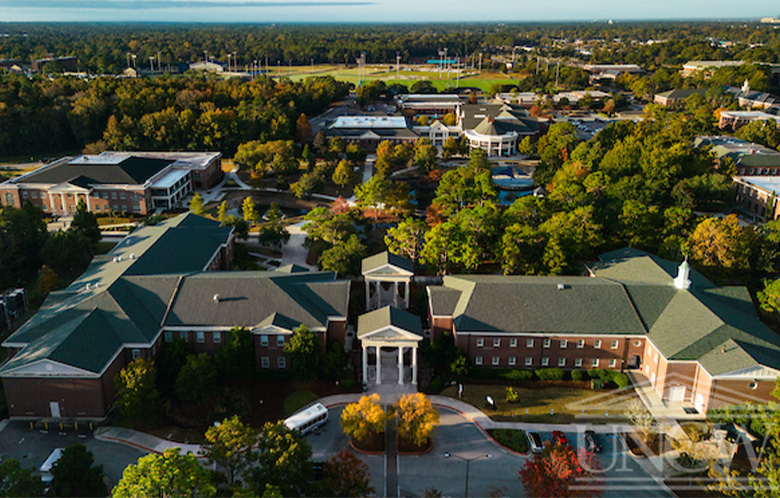
Overview
The University of North Carolina Wilmington (UNCW) is part of the University of North Carolina system and offers Bachelor’s, Master’s and Doctoral degrees in dozens of disciplines ranging from art, business, education and nursing to psychology, marine biology and engineering. The Library on the UNCW campus serves 19,000 students and more than 2,500 faculty with a collection that includes nearly 334,000 print books, more than 250 print serials, more than 311,800 e-journals and 642,000 e-books.
In January 2020, the UNCW library was undergoing a major remodel to expand open areas for students and reduce shelving for physical materials. According to Serials and Electronic Resources Librarian Sarah Mueth, the objective was to add more space-saving electronic resources to the library’s collection, including e-books and magazine archives.
Challenge
When the library closed in March of that year due to the COVID-19 pandemic, the library team had to pivot and further increase the volume of materials accessible electronically – and remotely. The library was also recategorizing some of its materials at that time, and Primary Sources is one category that greatly expanded.
With an increase in professors requiring the use of primary sources for various assignments, magazine archives have proven to be a valuable resource.
With an increase in professors requiring the use of primary sources for various assignments, magazine archives have proven to be a valuable resource.
Solution
In early 2020, UNCW subscribed to several magazine archives from EBSCO: Architectural Digest, The Atlantic, Ebony, Forbes, Fortune, Life, The Nation, National Review, The New Republic, TIME, and U.S. News & World Report.
Since then, these resources — which offer first-hand accounts of historical events as they were happening — have been used by multiple departments at the university serving students in many disciplines.
“The art department uses Architectural Digest for learning about art history and design; the business department uses Forbes and Fortune for studying historical economic trends and business news; and the English department uses The Atlantic for literary criticism via social and political commentary as well as book reviews,” Mueth said.
She added that there are other departments that could benefit from these unique resources because they offer a timeline of the cultural, political and economic shifts through the years. Mueth said that magazine archives can be used as reference materials in other areas including “theatre costuming and set design and for studying sociocultural commentary, creative writing, advertising, technology and film analysis.”
An additional benefit of incorporating EBSCO’s magazine archives into the UNCW library collection is the one-time purchase that allows for perpetual access to each title.
Being able to acquire magazine archives as a one-time purchase has been appealing because it’s meant we’re able to maintain content users want in a digital format.
Being able to acquire magazine archives as a one-time purchase has been appealing because it’s meant we’re able to maintain content users want in a digital format.
The integration of EBSCO's magazine archives has impacted the way students and faculty at UNCW access and utilize primary sources. With perpetual access to a wide variety of magazines, the library has enhanced its educational resources across multiple disciplines.